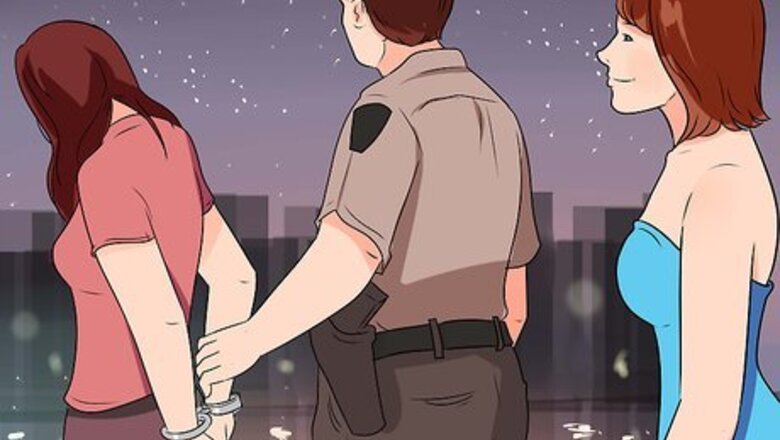
views
Knowing What to Do If You Are with the Friend during the Arrest
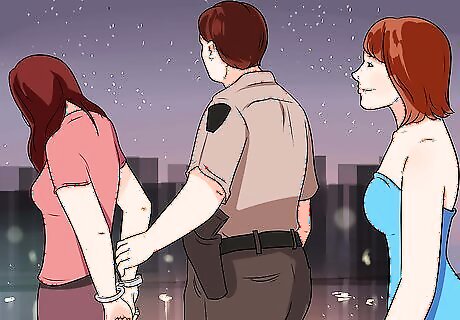
Behave appropriately around the police. If you are with your friend during the arrest, do not behave in a way that will make it worse for your friend. Do not curse at or speak rudely to the police officers. Also, do not try to rile up your friend or get your friend to resist arrest.

Ask the reason for the arrest. Confirm that your friend actually is under arrest. The police may simply want to question your friend. If the police do not have a reason to arrest your friend, they cannot hold him or her for questioning for a significant amount of time. If you think that the police don’t have a reason to arrest your friend, tell your friend to ask whether he or she is under arrest or not. Also, ask whether or not he or she is free to go. If the police cannot make an arrest, they have to let your friend go.
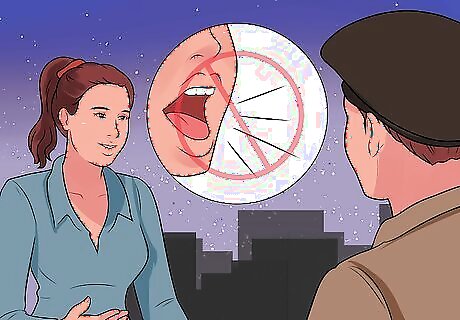
Stay calm. If you believe the arrest is a misunderstanding, calmly and respectfully explain your reasoning to the arresting officers. Do not lose your temper if the officers do not react to your explanation how you would like.
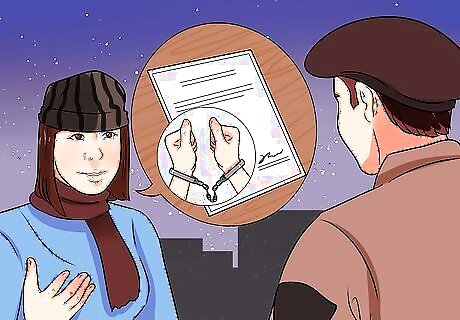
Get the name of the charge. You can look it up in your state’s penal code. This will allow also inform you of what the officers have accused your friend of doing.
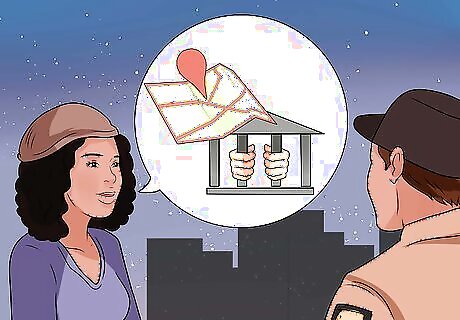
Find out where your friend will be booked. Politely ask the police where they will take your friend for booking. You can then begin making preparations to get your friend out of jail as soon as possible.
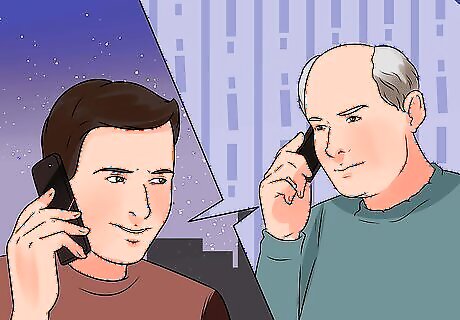
Consider calling a family member. If you saw your friend get arrested but haven’t heard from him or her about being released, you may want to call your friend’s parents or other family members. A parent or other family member may have greater resources than you to help your friend, such as retaining a lawyer. Your friend may not want you to contact family members. However, if you cannot afford your friend’s bail or if your friend cannot afford a lawyer, it might be the best option.
Knowing What to Do If Your Friend Calls You from Jail
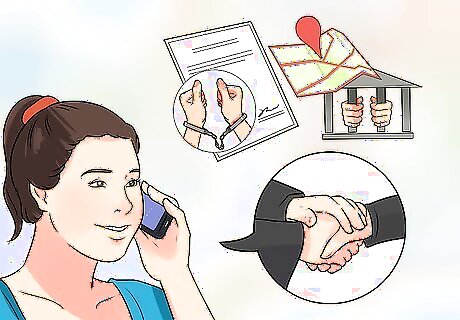
Inform your friend that the call is likely monitored. Your friend should not say anything to you that he or she does not want others to know. Your friend should only offer the factual information such as where he or she is being booked and under what charge.
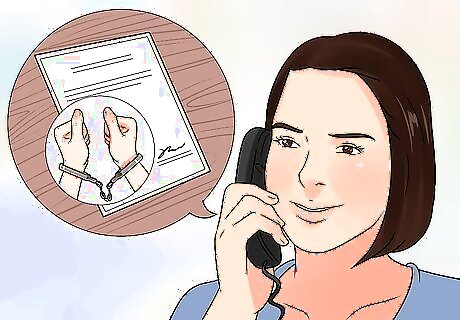
Ask what the charge is. If your friend is too flustered to offer the information, make sure you ask the charge for the arrest.

Tell your friend not to speak without a lawyer present. The police should have read your friend his or her Miranda rights, which include the rights to remain silent and have an attorney present during questioning. The Miranda rights portion stating that “Anything you say can and will be used against you,” means that your friend should have legal counsel present before answering questions due to the possible consequences. After reading your friend his or her Miranda rights, the police can continue to interact with your friend. Any voluntary statements your friend makes to them can be used at the trial. The police cannot threaten your friend or force your friend in any other way to talk to them or give them any sort of statement.
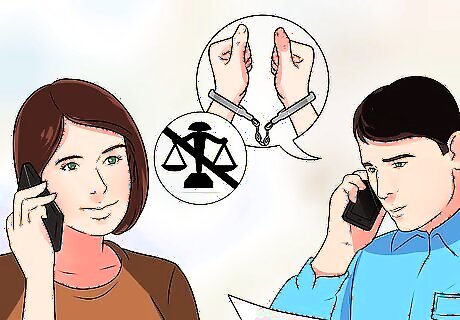
Explain an illegal search. The Fourth Amendment states that law enforcement cannot search people’s property without probable cause and a warrant. Tell your friend to talk to the lawyer for any suspicion of an illegal search. In the United States, moving vehicles are subject by law enforcement to search with probable cause after a traffic stop. This would not constitute an illegal search.
Helping Your Friend Find a Lawyer
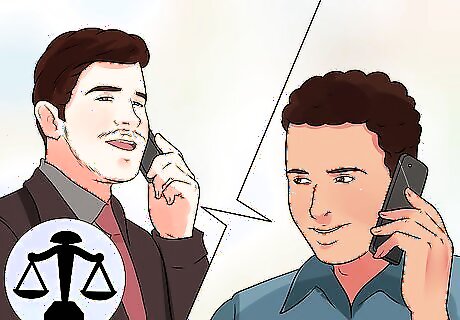
Tell your friend to get a lawyer. If you are present at the arrest, tell your friend to use his or her phone call to contact a lawyer. If your friend used the call to contact you, you can assist in finding a lawyer. Contact your local bar association and ask for a referral. You should speak with an attorney who has at least 3 to 5 years of criminal defense experience. Find someone who can go speak with your friend in jail.

Inform your friend about the option for a public defender. Your friend has the right to have a lawyer represent him or her even if the friend cannot afford one. You can tell your friend that the judge assigned to the case will appoint a public defender. This means the friend should still wait for a public defender before speaking to the police. The friend will not receive a public defender until the arraignment (the first appearance in front of the judge) in most cases.
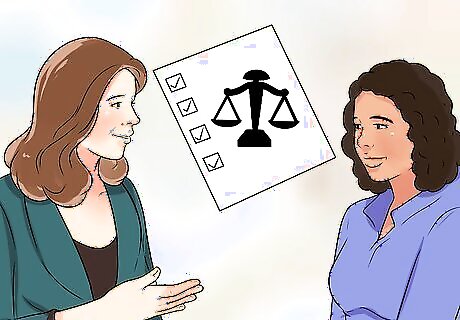
Follow the lawyer’s advice. Tell your friend that all conversations with his or her lawyer are confidential. Your friend’s lawyer cannot share any information that your friend tells them with outside parties. After hearing the relevant details, the lawyer will offer advice for the best course of action.
Helping Your Friend Make Bail
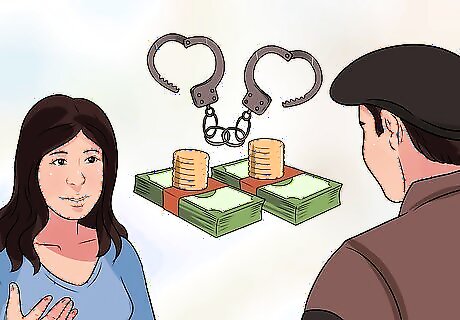
Find out the bond amount. At an arraignment, the defendant will have their charges read to them, they will have an opportunity to meet with a lawyer (at least a public defender) and will have the opportunity to enter a plea of guilty, not guilty or no contest. If they plea not guilty, then the court will decide whether or not there will be bail and determine what type and how much bail will be.The judge will set conditions on the bond, such as an amount of money. The amount of the bond is set to guarantee that your friend will show up for trial. The bond is refundable as long as the friend shows up for all proceedings. If your friend cannot afford the bond amount set by the judge, you or other friends and family may help him or her pay for bail.
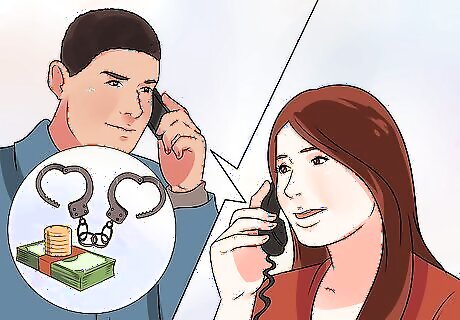
Contact a bail bondsman. A bail bondsman is someone who lends money to people in order to enable them to make bond. The bail bondsman usually requires that you put down 10% of the bail amount. He will lend you the remaining bail money. If you have trouble locating your friend after his or her arrest, a bail bondsman can help with this as well.
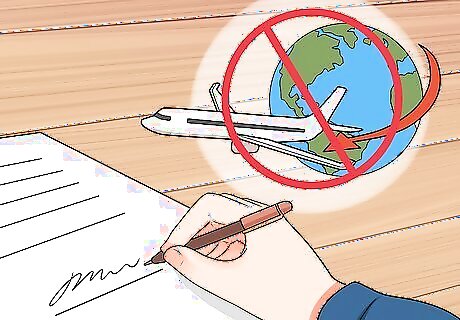
Have your friend sign a “signature bond” if applicable. If the judge determines that your friend is not a flight risk (won’t flee to another state), he or she may release your friend under his or her “own recognizance.” This means the friend will sign a bond recognizing his or her obligation to continue appearing in court for the duration of legal proceedings. If your friend fails to appear after signing such a bond, a warrant will be issued for his or her arrest. Your friend will also owe a predetermined amount of money to the court that the judge will decide when issuing the signature bond.

Arrange a ride for your friend. The police will release your friend from detention after someone has posted the bond or signed the signature bond. Ensure your friend has a ride home from the detention facility upon release.















Comments
0 comment